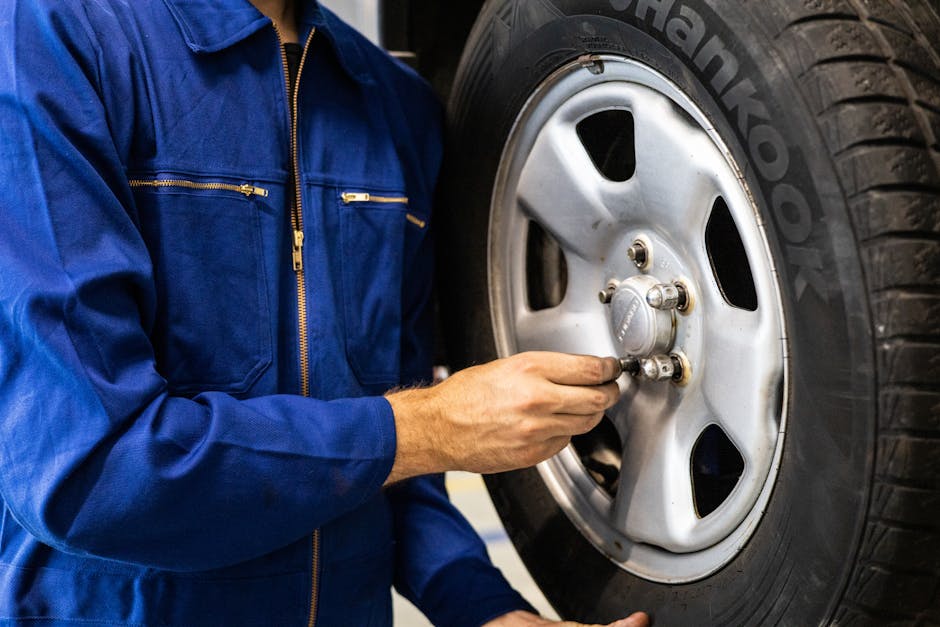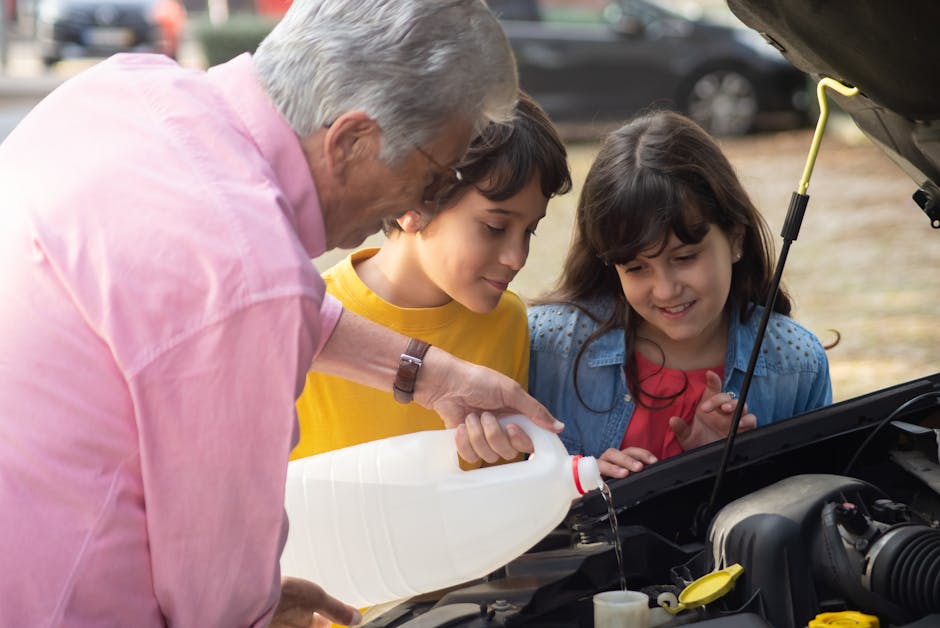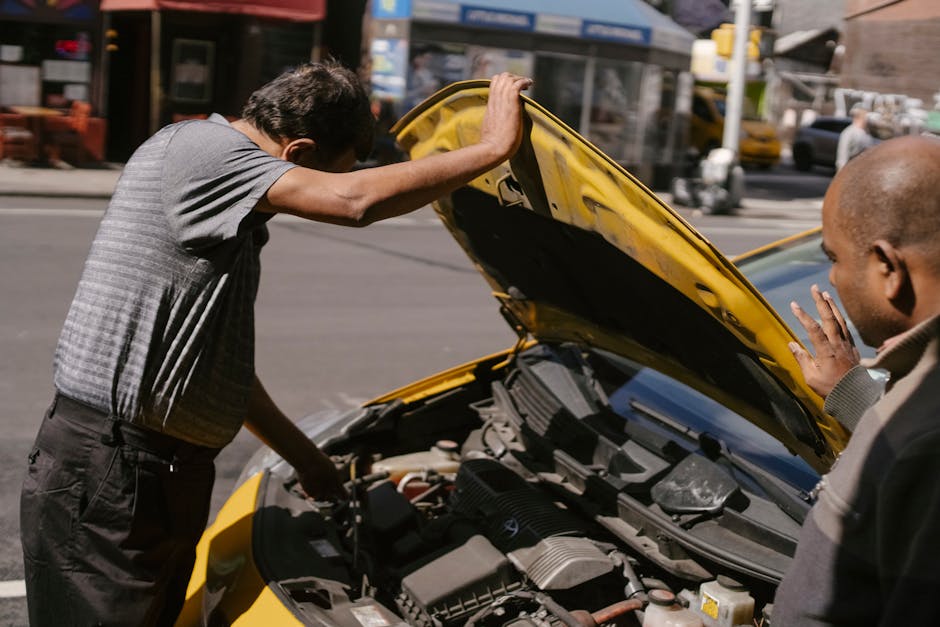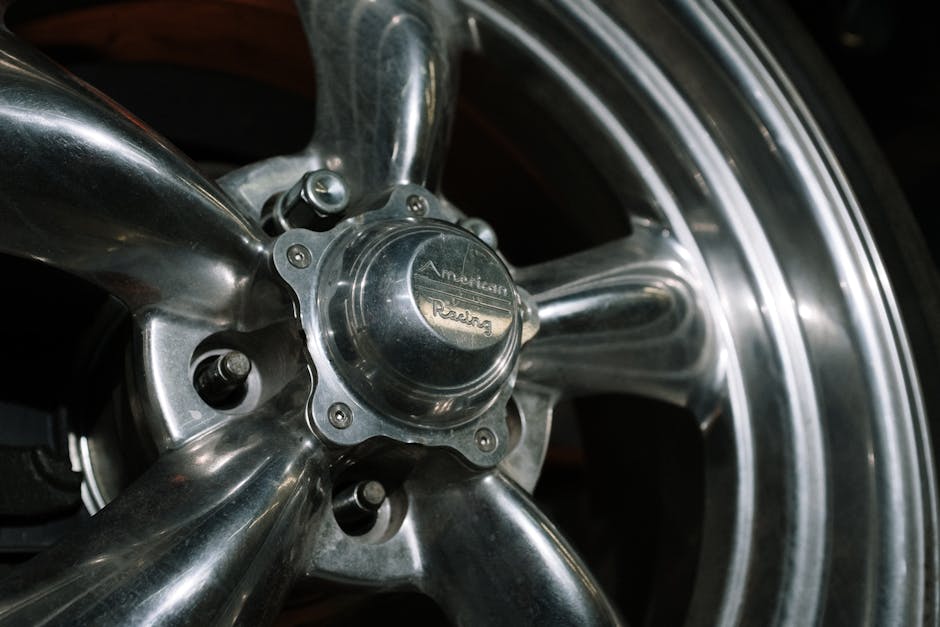 Swipe for more categories
Swipe for more categories 
What Car Repair Takes The Longest
Warning: Undefined variable $post_id in /var/www/dsw/wp-content/themes/DriveSmart_2024_v1.1/single.php on line 27
May 9, 2023
Warning: Undefined variable $post_id in /var/www/dsw/wp-content/themes/DriveSmart_2024_v1.1/single.php on line 75
What Car Repair Takes The Longest
Warning: Undefined variable $post_id in /var/www/dsw/wp-content/themes/DriveSmart_2024_v1.1/single.php on line 76
May 9, 2023
There’s no doubt that owning a vehicle comes with its fair share of responsibilities, including regular maintenance and occasional repairs. With life’s ever-changing pace, we often find ourselves worrying about the time it takes to address these issues. Everyone wants a quick and efficient solution to getting their car back on the road, but some repairs may take longer than anticipated. Knowing what to expect can save you time, and minimize disruptions to your daily routine. In this post, we’ll tackle one crucial question: what car repair takes the longest? We’ll discuss some common culprits, contributing factors, and what you can do to keep your vehicle in tip-top shape.
Factors contributing to the repair time: Availability of parts, type of vehicle, and complexity of repair

There are several factors that contribute to the repair time of a vehicle, leading to some repairs taking much longer than others.
First, the availability of parts plays a significant role in the time it takes for a car repair to be completed. If the necessary part is not in stock or must be ordered from another location, this can delay the entire process.
Second, the type of vehicle can also affect the repair time. Some vehicles, particularly luxury or exotic cars, have parts that are harder to find, leading to longer wait times for repairs. Additionally, the age of the vehicle can also be a factor as older models may have parts that are no longer in production or are only available from specific suppliers.
Lastly, the complexity of the repair itself can impact the timeframe in which a car is fixed. For example, a simple tire change will likely take less time to complete than an intricate transmission rebuild. The level of expertise required for a particular repair can also contribute to the overall time it takes to finish the job.
Transmission repairs: The process and estimated time for transmission replacements or rebuilds

Transmission repairs are notorious for being time-consuming and complex. Whether you’re faced with a complete replacement or a transmission rebuild, you should prepare for a lengthy repair process.
A transmission replacement involves removing the old transmission and installing a new or refurbished one. This process can take anywhere from 4 to 10 hours, depending on the make and model of your vehicle.
On the other hand, a transmission rebuild requires a more in-depth approach. This is essentially a makeover of your existing transmission, which includes disassembling, cleaning, and inspecting all of its components. Worn or damaged parts are replaced, and the transmission is reassembled and reinstalled in your vehicle. Due to its complexity, a rebuild can take anywhere from a few days to a couple of weeks, depending on your mechanic’s workload and the parts availability.
Regardless of the type of transmission repair your vehicle requires, it’s essential to choose a reputable and experienced mechanic to ensure the best possible outcome.
Engine replacements: Understanding the reasons behind engine failure and the time-consuming process of replacement

Engine replacements are among the most time-consuming car repairs, as they involve the heart of your vehicle. There are various factors that contribute to engine failure, such as lack of maintenance, overheating, or even manufacturing defects. Proper and timely servicing can prevent most of these issues, but in some cases, engine failure is unavoidable.
The process of replacing an engine can take anywhere from a few days to several weeks, depending on the make and model of your car, as well as the availability of a suitable replacement. This includes not only the time it takes to physically exchange the engines, but also diagnosing the issue, sourcing the replacement, and making any necessary repairs or updates to the surrounding components.
Considering the lengthy and intricate nature of engine replacements, it is essential to trust only skilled and experienced technicians for the job. This not only ensures the best performance from your new engine but also helps prevent further damage and costly repairs down the line. So, be prepared for the long haul during an engine replacement, and invest in a reputable team to ensure a successful outcome.
Suspension repairs: The complexity of fixing suspension issues and average repair duration
Suspension repairs are known for their complexity, as they require a deep understanding of the vehicle’s system and integral components. With an array of parts such as springs, shock absorbers, struts, and control arms, these repairs demand a high level of expertise.
The average repair duration for suspension issues may vary depending on the specific problem and vehicle model. This can range anywhere from 2 hours for minor repairs to several days for more intricate cases. For instance, replacing shock absorbers may take 2-3 hours, while control arm replacements could extend up to 4-6 hours.
The time-consuming nature of suspension repairs is mainly due to the need for precise alignment and calibration of parts. Therefore, it is crucial to choose a reliable and professional service provider like DriveSmart Warranty to ensure accurate repairs and long-lasting results.
Collision and structural body repairs: Time-consuming repairs resulting from accidents or major damages

When faced with collision and structural body repairs, patience is key as these types of fixes can be the most time-consuming of all car repairs. This is largely due to the severity of damage vehicles may sustain in accidents or other major impacts.
Often, these repairs involve the process of straightening or replacing of an entire vehicle frame, and in some cases, even removing the engine and other critical components. This requires advanced technology, well-trained technicians, and a keen eye for detail, all adding to the time it takes to complete the job with precision.
Additionally, if any critical parts are unavailable or custom-made, further delays can be expected. Moreover, finalizing the insurance claim process and coordinating with repair shops may also contribute to extended timelines. All factors considered, it is crucial to maintain open communication with repair professionals and be prepared for a potentially lengthy repair process.
Paint jobs: The multi-step process of painting a car and how it can prolong repair time

Paint jobs are notorious for being one of the most time-consuming car repairs, often lasting several days to even a few weeks. This is primarily due to the elaborate, multi-step process that goes into completely repainting a vehicle.
First, the car must be thoroughly cleaned to remove any dirt, grease, or contaminants that could compromise the paint job. Next, the surface is sanded down and any dents or imperfections are repaired. A coat of primer is then applied, followed by multiple layers of the chosen paint color.
Each coat must dry completely before the next can be added, meaning a considerable amount of waiting time is involved. Finally, a clear coat is applied to seal and protect the new paint, which again requires a thorough drying period.
These steps, combined with any necessary additional touch-ups and polishing, make car paint jobs a lengthy process. However, the end result can be well worth the wait, providing a refreshed and revitalized appearance for your vehicle.
Hybrid or electric vehicle repairs: Unique repair needs for these vehicles and associated time estimates

Hybrid or electric vehicles represent a shift towards eco-friendly transportation, but this comes with unique repair needs that can demand extra time in the shop. These vehicles often require specialized knowledge and equipment to address their complex electrical components or battery systems.
Some common repairs for hybrid or electric vehicles include replacing major components such as the electric motor, inverter, or battery. While replacing parts like filters or starters on a traditional vehicle might take a few hours or less, an electric motor replacement could take 5 to 10 hours, and a battery replacement might take up to 6 hours. Similarly, servicing or repairing a hybrid vehicle’s regenerative braking system can be time-consuming and complex, taking anywhere from 4 to 8 hours.
It’s worth noting that as technology improves and mechanics become more experienced with hybrid and electric vehicles, repair times may decrease. However, it’s always smart to allow extra time for these unique repairs.
Custom modifications: How specialty and aftermarket modifications can extend the lifespan of repair projects

Custom modifications have increasingly become popular among car enthusiasts, resulting in a wide range of specialty and aftermarket products to enhance vehicle performance and aesthetics. However, it’s important to consider how these upgrades can impact the duration of a car repair project.
When a vehicle is equipped with non-standard parts or intricate modifications, mechanics may need to spend additional time diagnosing an issue and finding compatible replacement components. Furthermore, specialty modifications often require expertise that not all repair shops possess. This could lead to waiting for a specialist, leading to an extended completion time for your repair.
On the positive side, many custom modifications such as performance suspension upgrades or advanced cooling systems can greatly extend the lifespan of certain components, reducing the frequency of necessary repairs. With proper care and maintenance, these enhancements can ultimately lead to a more reliable and enjoyable driving experience. Still, car owners should weigh the benefits against the potential increase in time and cost for repairs when considering custom modifications.
"> /var/www/dsw/wp-content/themes/DriveSmart_2024_v1.1/single.php on line 177
">
"> /var/www/dsw/wp-content/themes/DriveSmart_2024_v1.1/includes/quote-modal.php on line 8
">


